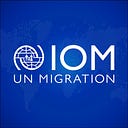International Youth Day 2019
The theme of the 2019 International Youth Day (IYD) which took place on 12 August is “Transforming Education”. The main question for IYD 2019: How do we make education more relevant, equitable and inclusive for all youth?
This question is particularly important for young people on the move. Young migrants often face integration challenges in host communities as victims of social marginalization, and face difficulties and restrictions in accessing quality education, particularly if they are irregular migrants. This is a significant issue in that access to quality education ensures that young migrants can use their unique voices and expertise to contribute to their origin and destination communities, and to help build innovative, local solutions to big, global problems.
In short: How can we expect youth around the world to build a Future We Want when they’re not given basic tools to do so?
Today, more than half of all children and adolescents aged 6–14 lack basic reading and maths skills, despite the fact that the majority of them are attending school. This global learning crisis threatens to severely hamper progress towards the SDGs.
Let’s look at how Niger celebrated IYD.
Celebrating International Youth Day 2019 is particularly relevant in Niger, where almost 70% of the 17.1 million population is under 25 years of age. Education levels remain exceptionally low in Niger according to UNICEF, with over 50% of children and youth aged 7–16 that are not in school, and fewer than 60% of primary school students enter secondary school. The quality of education is also very low: fewer than 8% of children at the end of primary school have acquired sufficient literacy and numeracy skills.
Youth in Niger are not only often poorly educated, but also struggling to find a job: the unemployment rate is high among youth, estimated at 23.7% for those between 15 and 29 years. Poor socio-economic conditions are acting as a push factor for irregular migration, especially among young people.
That’s why IOM Niger initiated the IDEE project (Initiatives pour le développement de l’entreprise) in June 2017 aimed at improving the socio-economic conditions of youth in Niger by promoting enterprise creation and boosting existing businesses. IDEE provides integrated support to entrepreneurs and includes three main components: incubation services and technical training, equipment and microcredit. The IDEE project is implemented in the urban areas of Niamey, Tahoua and Zinder.
In the weeks leading up to IYD, IOM Niger organized 5 training sessions in the cities of Niamey, Zinder and Tahoua, for migrants and community members, delivered by young entrepreneurs working with IOM’s IDEE project.
Here’s a glimpse of what happened:
A beneficiary of the IDEE project (Foyer Annour Aicha) provided training on making cosmetics and sewing for young girls and women. Foyer Annour Aicha provided training for 40 girls assisted at the IOM transit center for families and women in Niamey.
Foyer Annour Aicha was created in 2016 by Rachidatou Abdou, when she decided to stop waiting for a job to launch her own enterprise. Foyer Annour Aicha creates soaps, lotions, perfumes, and other beauty products mostly for women. Rachidatou is also passionate about training, and so far, Foyer Annour Aicha has trained women not only in Niger, but also in Gabon, Senegal and Burkina Faso. Thanks to the IDEE project, she has been able to equip her training center with the materials she needs. She’s also improving the packaging of her products and her marketing skills.
During the training, Rachidatou taught them how to make body lotion, body perfume and fragrances for the house. Once back in their home countries, these girls will be able to use the training as a starting point to launch an income-generating activity.
“We are lucky to have Rachidatou teaching us. Not only is she a great teacher, but she is an inspiration to me and to many other women here. I did not think I could be an entrepreneur and have my own business, but I see now that it is possible. I might not end up making beauty products, but I am for sure going to work hard to have my own business one day, so I can take care of my children and my family. That is all I ever wanted” — Kadidja, 23, CAR, mother of two
The article was prepared by Amira Nassim, Migration Policy Officer at IOM’s Office to the United Nations, and Virginia Bada, UNDESA Fellow — Projet IDEE (Initiatives pour le Développement de l’Entreprise)
